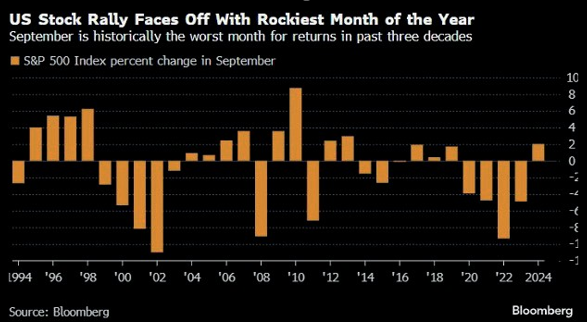WHY MARKETS STRUGGLE IN THE ROCKIEST MONTH OF THE YEAR
For three decades, September has carried a reputation as the toughest month for equity markets. The so-called “September Effect” is one of the most persistent seasonal patterns in investing: on average, the S&P 500 has posted its weakest returns during this month, a trend that’s also evident across global markets.
So why does September so often disappoint investors? While no single factor explains it completely, a combination of structural, behavioral, and macroeconomic influences have historically aligned to make the ninth month of the year unusually challenging.
Institutional Rebalancing & Fund Flows
Large institutions and mutual funds often rebalance portfolios after the quieter summer months. This process typically involves trimming winners, selling laggards, and resetting allocations ahead of year-end. September also marks the end of the fiscal year for many mutual funds, prompting additional selling pressure to realise losses and manage taxable gains.

Quarter-End Positioning
September closes the third quarter, a key checkpoint for corporate earnings and investment strategies. Fund managers frequently de-risk portfolios ahead of Q4, contributing to a bias towards net selling.
Macro & Policy Uncertainty
September is a critical month for central banks, particularly the U.S. Federal Reserve, which often uses its September meeting to announce or signal policy shifts. Markets can become jittery around interest rate decisions, inflation releases, and employment reports, amplifying volatility.
Investor Psychology
History matters. September’s poor record is widely known, many investors enter the month cautiously, with a bias towards hedging or reducing equity exposure. This self-fulfilling behaviour often compounds the very weakness they’re trying to avoid.
Lessons for Long-Term Investors
While September may be statistically challenging, it is important to keep perspective. Over the long run, markets are driven by earnings growth, valuations, and economic fundamentals, not the calendar. For patient investors, September weakness can provide opportunities to add to quality positions at more attractive prices. At Hamilton Hindin Greene, we believe staying disciplined, rather than reacting to short-term seasonal patterns, remains the best way to build and preserve wealth.